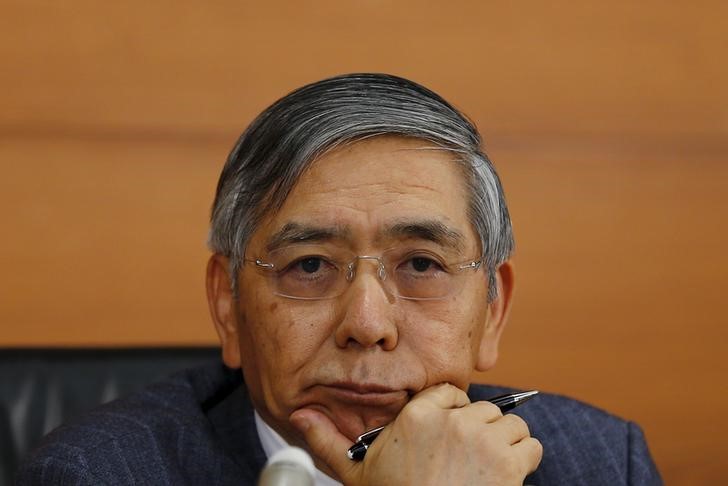By Leika Kihara
TOKYO (Reuters) - Bank of Japan Governor Haruhiko Kuroda warned on Friday a prolonged, deeper-than-expected slowdown in China and other emerging economies was the biggest risk facing Japan's economic outlook.
"If Japanese companies hold strong concerns over the outlook due to developments in emerging economies, they may forgo capital expenditure or narrow the margin of wage hikes," Kuroda said in a speech.
"If so, this may affect domestic demand, which has been resilient up till now," he said.
Having kept monetary policy steady just last week, Kuroda said Japan can hit the BOJ's 2 percent inflation target without additional stimulus for now on strength in domestic demand.
But he stressed the BOJ won't hesitate to ease policy if risks, such as sluggish overseas demand, threaten to derail Japan's moderate economic recovery.
"The BOJ is currently of the view that it can achieve its inflation target by continuing its policy," Kuroda said.
"At the same time, it will continue to carefully assess various risks, including the effect of slowing emerging economies," he added.
Kuroda said China's economy can avoid a hard-landing and was likely to pick up around the end of this year through next year, thanks in part to stimulus measures taken so far.
Japanese Prime Minister Shinzo Abe also offered a sanguine view on China's outlook.
"I'd like the Chinese government to steadily proceed with structural reform while maintaining transparency," Abe said in a separate speech on Friday.
But Kuroda warned there was uncertainty on how much an expected rebound in China would boost growth in neighbouring Asian economies, as China now produces more parts domestically instead of importing them from other countries.
He also said Japanese firms have been disappointingly slow in boosting wages, a sign they have yet to dispel the "deflationary mindset" that beset Japan during 15 years of grinding price falls.
Japan is skirting recession, with some analysts forecasting GDP data will show a second straight quarter of contraction for July-September, due largely to weak exports and factory output.

The BOJ last month cut its economic growth and inflation forecasts but held off on expanding stimulus, clinging to the hope a tightening job market will lead to wage hikes.